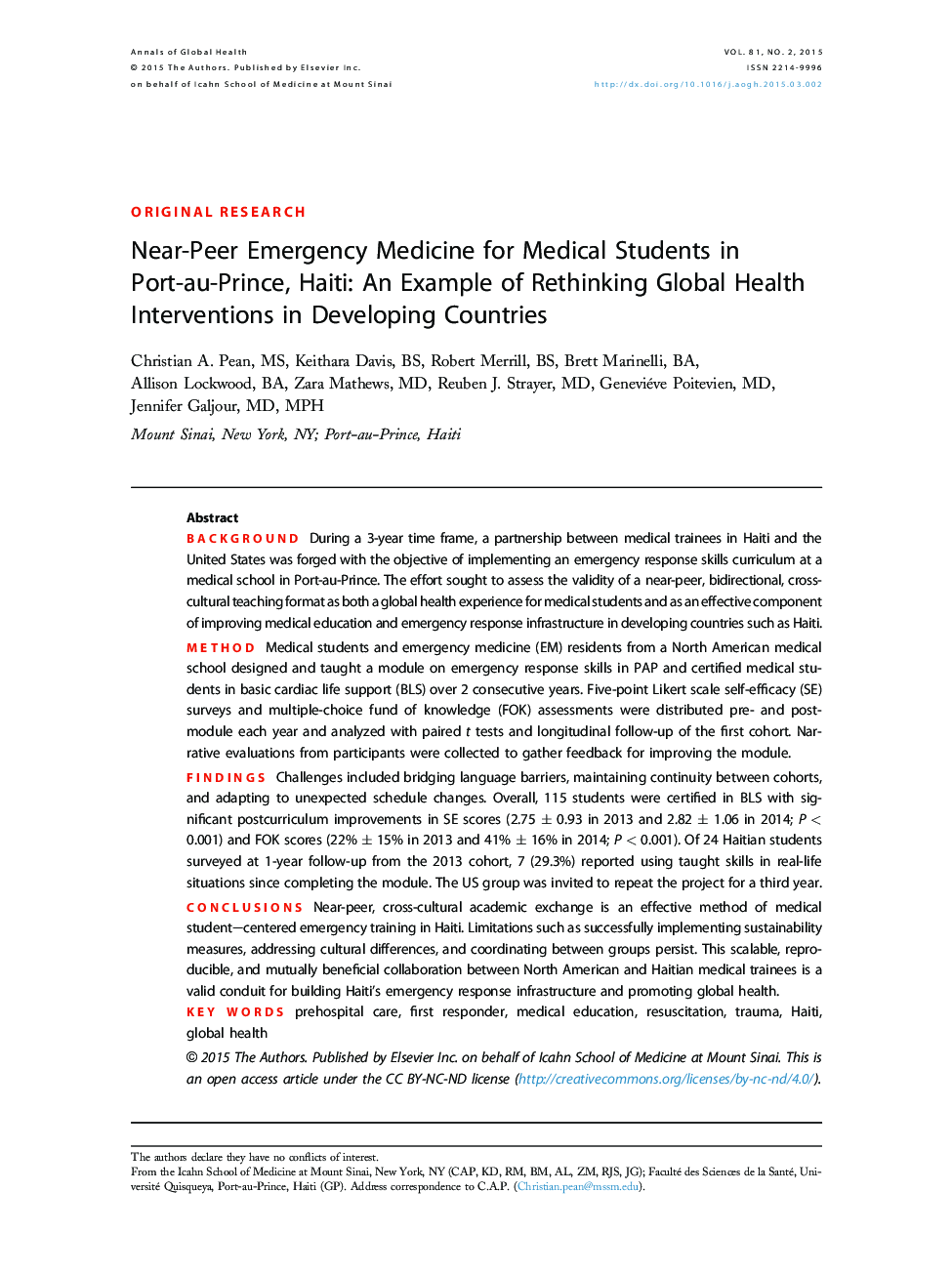| کد مقاله | کد نشریه | سال انتشار | مقاله انگلیسی | نسخه تمام متن |
|---|---|---|---|---|
| 3446069 | 1595435 | 2015 | 7 صفحه PDF | دانلود رایگان |
BackgroundDuring a 3-year time frame, a partnership between medical trainees in Haiti and the United States was forged with the objective of implementing an emergency response skills curriculum at a medical school in Port-au-Prince. The effort sought to assess the validity of a near-peer, bidirectional, cross-cultural teaching format as both a global health experience for medical students and as an effective component of improving medical education and emergency response infrastructure in developing countries such as Haiti.MethodMedical students and emergency medicine (EM) residents from a North American medical school designed and taught a module on emergency response skills in PAP and certified medical students in basic cardiac life support (BLS) over 2 consecutive years. Five-point Likert scale self-efficacy (SE) surveys and multiple-choice fund of knowledge (FOK) assessments were distributed pre- and postmodule each year and analyzed with paired t tests and longitudinal follow-up of the first cohort. Narrative evaluations from participants were collected to gather feedback for improving the module.FindingsChallenges included bridging language barriers, maintaining continuity between cohorts, and adapting to unexpected schedule changes. Overall, 115 students were certified in BLS with significant postcurriculum improvements in SE scores (2.75 ± 0.93 in 2013 and 2.82 ± 1.06 in 2014; P < 0.001) and FOK scores (22% ± 15% in 2013 and 41% ± 16% in 2014; P < 0.001). Of 24 Haitian students surveyed at 1-year follow-up from the 2013 cohort, 7 (29.3%) reported using taught skills in real-life situations since completing the module. The US group was invited to repeat the project for a third year.ConclusionsNear-peer, cross-cultural academic exchange is an effective method of medical student–centered emergency training in Haiti. Limitations such as successfully implementing sustainability measures, addressing cultural differences, and coordinating between groups persist. This scalable, reproducible, and mutually beneficial collaboration between North American and Haitian medical trainees is a valid conduit for building Haiti's emergency response infrastructure and promoting global health.
Journal: Annals of Global Health - Volume 81, Issue 2, March–April 2015, Pages 276–282
